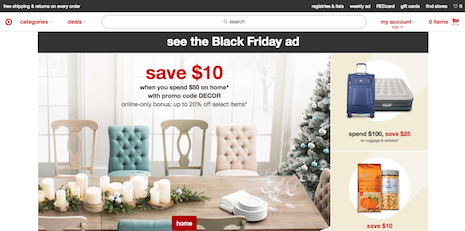Cyber Monday is projected to be the largest driver in holiday 2017 sales, more so than Black Friday, but a new report from Forter stresses that the threat of fraud is substantial.
Forter’s "Fraud Attack Index" shows that fraud is still up 2.5 times higher than before its spike in 2015. Other research from Convey shows that while 15 percent of shoppers will do the majority of their shopping on Black Friday, falling on Nov. 24 this year, 22 percent plan to do so on Cyber Monday Nov. 27, making fraud a significant issue for retailers to consider.
“The data from the latest Fraud Attack Index shows that domestic and international fraud attack rates remain two and a half times higher than before they began to spike significantly in late 2015, despite an overall decline in 2017 compared to 2016,” said Michael Reitblat, CEO and cofounder of Forter. “The key takeaway for merchants is that it’s crucial to remain active and agile when it comes to fraud protection in order to identify new developments quickly and respond to them effectively.
“It is equally important to do so without turning away customers by mistakenly identifying legitimate transactions as fraudulent,” he said. “In short, fraud prevention should be accurate, not risk-averse.
“One way online merchants can accomplish this is by developing a deeper understanding of what customers - both legitimate and fraudulent - are doing at every step in the consumer lifecycle. Customers interact with an ecommerce site in many ways, from account signups and logins to profile building to product browsing.”
Holiday shopping
Luxury retailers will need to focus on both their bricks-and-mortar strategy as well as their online plan to conquer the holiday season.
No matter what the day, all shoppers are focused on the deals and savings. But for luxury retailers, free shipping will be a major selling point along with focusing on ways to draw shoppers away from Amazon.
 Mass merchandizer Target's Black Friday homepage
Mass merchandizer Target's Black Friday homepage
Fraud will be something to think about for all retailers this holiday season and while research shows it is not going away, it has stabilized.
Electronic goods is the industry most affected by fraud but the luxury sector is leading the way in fraud prevention. There has been a 20 percent decline in fraud rates for luxury brands and retailers.
However, food and beverage fraud is on the rise with an increase of 117 percent in the past year.
In terms of luxury retail on Cyber Monday, delivery will be extremely important. Reducing delivery times and cost will be key in attracting the holiday shopper.

“We will see more luxury brands incorporating mobile this year since it will play a big part of the shopper journey (with more than 75 percent of American projected to use mobile channels for holiday shopping needs),” said Doug Baldasare, CEO and founder of ChargeItSpot. “Shoppers of luxury and off-price alike are using their smartphones for online purchases, as well as to do research before they hit the stores as a way to maximize their time and make the best buying decisions.
“Chatbots will be another strategic trend this season, particularly in luxury,” he said. “Saks Fifth Avenue just recently launched a gift guide chatbot as part of their holiday marketing strategy.
“The bot tracks conversations shoppers have with the bot to learn what they like and offer gift suggestions. In doing so, Saks is harnessing the time shoppers spend on their phones to learn more about their shopping behaviors.”
Retailers and brands
As Black Friday traditionally sees a surge in foot traffic for retailers, the lack of bricks-and-mortar presence in terms of booking means that Cyber Monday is a better option for travel brands.
Luxury hospitality brands such as Peninsula Hotels & Resorts, Marriott International's Starwood Hotels & Resorts, ocean liner Cunard and The Warwick Hotels are all hoping to see an increase in bookings by offering substantial deals that appeal to affluent consumers who, despite contrary belief, are still interested in a good deal (see more).
While Black Friday has been traditionally one of the biggest, if not the biggest, shopping days for retailers, last year saw online retailers overshadow bricks-and-mortar stores in terms of revenue growth.
The numbers come from RetailNext, which reported on the relative rates of growth. Traditional retailers are not without hope, as many of those online sales came from retailers that have both a physical and online presence (see more).
“This season, luxury retailers will use customer experiences to differentiate themselves amid heavy discounting and competition,” said Rob Taylor, CEO of Convey. “Among our luxury retail clients, it is clear that the delivery experience is becoming a unique priority, and retailers are responding to this issue in ways that go beyond fast and free shipping.
“Instead, they are taking a concierge-like approach to managing deliveries to success,” he said. “For example, one of our luxury clients is really focused this season on reducing overall delivery time by actively managing shipment exceptions and proactively communicating with customers throughout the process. Just in the last 30 days since launching this initiative they've seen a 25 percent reduction in transit times.
“As a result, we will see a strong emphasis on meeting key promise-by dates, proactive communication throughout the purchase journey, and more shipping options that make delivery convenient and safe. Luxury retailers who make shoppers aware of and manage for common shipping options like re-routing to pick up lockers, holding items at terminals and even designating a specific delivery date available to their end consumers, will win out.”
{"ct":"AImqL+w9SMYU7wuZS4NaB3eLaGpekWATRhoUpdUZbVi\/aZxz62czXZ3V0RSX6FaxpztmetT7enYuLNEiDpBdzXkC1nn8Z4pettsNZj5UeFvg32B41VmHQbKPH9sV6aj\/1H19gNcsaYX0skt7gHlk0USHHroWarcoqfP90dFbaJxAKgZDBebUeWbHNFZ1kjLfWmWCkor9MQqmaI4y8\/ETNR27cNenyB2T1zAAYnNx0gK9A\/nbPJdThihNp0UR+sUq3YWSPq7okFtjWXGfmCFSKg9uW\/BUNIDmaTZLXokiqpKBhmXa93gyafqmGQyw92NvkRJmeInol6vZzaCyV4qmEc5ca9kIUWswaLP6n9MUv2uTISZ6ZwXTObeloSUMofW4cYdMiu7\/l4+O4vkjJKoi+ugvmBAmfvluCWa7Q5Nm+2zWMpqfB0T060vCBIEaByvnNiAeRsN0YqmchRdlto29vIXmR15oMt9U7DyRX8LFrx6ytwJzSrbEtVr8WsjOAssLQuwqNSeF\/U7nVCU3uI3N7ZJVQSsn9\/wIGm0eRYd9FVKAIFJkuZfQyg6VdoUrnUE+m4aJ9wqKI9jFEp65C0lHGhEI3SDwrY9ANHwuMo1YsvbI4ipXpnLt01g5xjBhhciv8DdI7OJW1HrvcuPHUyqMBde9vmaReT9TnnCNHAPBiOHRa9iqhVG6JxFwTWuK1t5L2b4Abuq\/wSvKE0vW1ANbfEhb8ZvqqD7T27RmlhkyCmwJv9bXbV52154iKNSfJBNE\/RG1nJrLA8uU9Gq7lhw5n\/vla\/lEPIwDT4D\/1xe3Jr2+LQFTsoiSN0acHbIsyQdf8wg0rSnCsyh2itcbjFkcjoyVzlMzCA1RFcLoauCX1WiswHP0JYnmMGkGpTugKKuvRaSIo025YAlGUkJIhDK2hHPYUGYXDN7zwNlOmwTtM80VNpRrTYQ3h\/xCKiqMnd37GBwugQCA0x1D75OV\/Hil4rDTtpLE7JcGl3cKkXiERQNCBzwF++doPcqv21YVk2atGfGIdnuVS23Bur\/DtAW5zdE6719vdpum3S85zOulhWK9t6MX3hBWlx+I8XE6JZNFaTflhYY2kLes2ztzQAoosWw6yFfQQ+I7IrwuxDkU7FfBCglwQ4BBoTK54VdsGodf\/c6Dgt0J5GFDDGUTA+NI1CLyc8NCgUoZp3r7kptFYGaxKlLSzSY5gNZjXLFnl3fRXcec5wHZpTasLuG2J2L+ieCCTBSAWu36iBQFqxiw151ZGNErZdZPSLodLpQsiMcqTyj44inRlnzOPI8JKi0LnRQIaAxon7t+7hHGFDSdg4tDC7lXRCxda2yKMUVuQfu40+kU3QWzEofeC\/fUH7iVZn5bABEKRc5dvw4xQQ70DkXVidRd1eUes7RG1ppU86xmYjkveP3fIyIZHLSsYutE+XsUK7FHlWm\/YpcSntuDEkwt+YA5Yqx+butWOrLFskke5lewPv00nBYRHsbrUFK\/eV+iH01RpMKH5O69NEpaCahMlOfOE2h8S+PQdzv2S6GE1ddDkC3NtVEwx5+1yA4Ybzdqa3e17vzC6RU25W2\/eNPabM21Dj1Gpfj1Rek2h5geturCXjFhR4sTxLtcWIuQDY7VVBKCwSHYpJWSF8HqF+h5inW2bgluf4hfbTZPBqFHsIhuwNOOBv\/R7zqE9mb\/VueOoS4ddxMuY\/S\/hRaO+L0B6fwpM+GBFOaSRrYMnxJQtu0XBtFUOzYEw6uu2gK3lJeYgy6hAsNiL2aSo85MeM4bRmpYzq4fxbrqP5\/kNQy\/PZH5EB3coqSTAgSa7E4H7F9XCZaaj7sJry+X+2o+h3AiLjLKuHkkEzTCVkyCZEIeXXx+b2KvG0iNCwkiyqyQay+iFh\/GpF5jiyy6q24A8Fi6UvyRX2NP4RPKD546wntUfL5CTHcDymVuA0E4KndFrFqKKUxp8WAPCF\/CWCEKK\/eewCvGyipPI1UA4JS4hwtTJ6C+swUPUm5aHafTvo\/Md+L2aKOrKDr2R18gUH6kRGeI2Ii22e0\/SB5wbJw5E4vqzImUY30TqdzrxSIqV5vWsKu7MLxF8Hq77pAkio1s\/6FyWYNq2pqDRIH4FNj7FI1VXohGjMhuvWtSCTBRCugTfhNw7ho83B1RnmipvxxEo6wZ2AnN1ZDtELCazttWyzzgI1Zap+lKW8nf0+BGcq42z8llhX6tX9WqbNG37v9n1eEYE9E9NvHA9w8zQQlH5Scm4+mNZwwMnupADtk2i5zSP+hrTf4IwVW+FHJzF5OQBQeijSqpcCQJU1SFywbYXj2U98UnRQfDd7ZSdcrra0HoTtTUTI12bmhjfGa1e4D\/XjLxLdw9m8hqKGTka7Oq1gHabdesGX\/yKHsCtf\/ltblo0YODSidX27\/m6BSX84QbG4zszWDqECDMR\/zz6kixr9FnICK3GNDLDHefptWrD5mk79jHQR7HM1QWmGJjhH+DZg5rg5soeEj97BBYB41T5SfDGqdbf\/73c5XexcBpsUva2ps9D4JVNH3cv\/FvpP+L+ZYgdcaBtXd+shQMS6eui\/0\/6VlXdqAuaQVe00dd69+33vV1oK9okRbUUoZpRBTvy5C54ZANoeFvhhj4Ae1CDxFkqTFcbOTPrY6B7QoSSUSeJfToNuVDYogDbl\/b8O8q5UaKgmYvYlWcocyxJ5VJmnCQi5468WijtsrPCxLaSSZTm11iMy9D2szPb2eAZtUORti3NkrDPjtwYSImGdLUuyDo0U+dmiOTOeXuS8xUqKb9ueWFMOY6ukMF0Cvu6Ufqc\/xPvWGlQnUXkBLBNrdA6mypbropoteoM8d27lxk4TDXXf\/O4KRC6oUtsCAoXsA+qkB+tM42NhtTCso9ezI57r34ceux\/dEEUoyV8zws+3TqxfRRo2S4MnyW0uUo60mdLp6hmOiek02FnspV8DlsdKUiC2Xyzv\/zjrSa5S4FMIXhm3O0m\/UpwOX8NXJlxBbHp0IKuJQvNHAIR\/JKrQo93z5kmnXyURItzcBNNa63fFpwcjQV1tRjkB6irOAlmkO1IWS6TK6BVSae8ft0mORINnixTVibR+WOZRSBAm28PUOzgWqFeud\/mU3VdAx5xXDBECAj4zHV2M8yTq4st6w3fdFNCDi5vT1eDk0OJXejfzCSE\/zEBnRXaTxEbc+0xsEvxh3EefLgfq3\/QGsp1LxWHavYEsXcfFOX1U3T6oEP5WzP74JdeNOp+7xEKeoZ2AH6STcU5PMCzME3mDkrkgYNYrRZsI3ZZqDmzE2AGgGvxP9mL8q0nF4olGc8eHi0SjnTBGVs5lCgiV275cFj4zOF\/yNxDBR3gvFBA0RNHXX7QWhruEs9Pd6lpUBVXzLWGOx9jyKFVcEtiN4yDAFZCa\/qe3zkTnsQeZMmZ9cwRRxvMXo9nbCqUQODneR19p3vl1RfpaP4GIz3P6FKBSwmHyvCAseVUreThEUD7KwsOw6d1b6i5ahdgB8TgFtCSWmh9VhifF4oBi5NaH7FNqU53FZ4UQArFU8XC47Bljggrg4QdwoCMzzG87Rudx107xVhDOb9q9ehBMN7rAzGDDyIyVLQwCUur8ftuUFJqQ0uWMhcePBxCWBpVh7qunaFXFw7DWygBoHxUIGdljwSbTSIhdgfHcNhLrBe1L\/aNDKec2HB2K\/xYucNxVSoivTfY+OGomd3bkUA+8B9e\/EvpjMYuR1gZhwyjgIpW52kSx28AcT22oGT+qTTbbLMXJVFWAtIdJVfMFeyo0aXQub0jcY26Rjc8THCgLxURFM8XFwKT9KxbeFvbY1GSKgoQLJ1kby5fa1S9HGjSO1814rcgIINNFyMIPLDddGa6psbOp6r1Ka5Ory9AGlOACWkjsVDByvnK5gRxyisgRFjnHOhFgLXGyeTlReYybTIZWSjQAOJW8OKuKjit\/JAmfbqiW0eq+sZ+MqsEeztSNheSClPyBaK0l7R83082axEN21IHDsVNw60DdHHsIZSX+LoNyhPsfQlD5k+YArYhYNtIqi9n\/k75fxPtF7yhmjXeCBWkdKfHLTzKa7l1fpI54FWmTVxKPtIFDpW5rUpZsJdIxbW1NiCJCTD0GDytdI8X9I1NAN4CTDLsXh96wrGROlU9rsESHxek+4EtkAvWjZ4xFOdZasqYoomBnWtXoeDI58q4rD2F+k4UiA0mYK8fYOjc9B\/IAMEnp6bh+eulwKAQFazNHRvBlIFVjEkIy\/AnCwUL7pl8mx2iaOgM5ZXmYkEV6eo2XbA5PKSc8qsMTfUOuEq7AHAZ4cavlgufCv2d4Ayowfgu03xbMGGEvHr3rULxwFVNPnCL\/ZVUwQSM6j346prW9MkJO8HOH5XZfiuUeU57x5Jxtm4B0eyO9BQV2DmwaxgGA7z3BmxKI\/43QRSKeQkO3OG3Wz032CnNDVk04x8OCYrRFx8hJjwQv6D\/uTnwn3Dopm\/8yrQJYTs34lSwCdawI1r884SehdVhGpU6XLDssPPu8lB0\/gdcY2zIiXyy3V8WDrlt7fZtPzHsizhuqtYdgD1XmWmckZefpeP3WDaeaboU+oefKdM+3jEr6aM87nBBVNKuCMjS\/Pg7hZqjPjHXFcTGVPWAIsBmcQr4WQEZ4HCwyfoaDbaliw\/HXV7Tj2IFtJRYfsAy6iXs7kW3IcFJ4Sxh1Q3\/MfE8Ojoi+yYmCGxqngqDsguXLdfOS0g12tggDXKzFeCJHsBG9V+HOJ0eXw88BoIvpBUFI0W7I339MsWX9Yz0P6zlAAMliptEFm3Dc5Ir81+4dVpzLNO2Zrt\/lT\/vYfDqFIVPS5+BoD34bdCOny23myPnAS3vQ\/SJLazfVtc7M5xNYfx6mDNDLt\/o4x\/P70xLEFV0PMmbl657t2w0J1xQh6qitP+3hS4EtVXeiZuwuhKFsT98C0Yp2UFRjG4E7Ygba4yGIeLPTlSeYYEACvRF+BktuYegCl3wZ2bvxxcYQCGm2Ug50E\/Yv10c+VuKQb6fVu2579dItn561Ezhx8poAxP2NaUG2MVjcvjSrRVXsznZPgNpqfqtbbw\/BpNOuiIsZ\/CYzmPLsE07fZGnFf2j+6+lcAeXzAl5EgNqv7\/slhBz3B\/spbyqTcQYMZSnoWak2BQJxAPgb3\/+wAc6CnyYZ+ofWru7ZK57mW8QZ1FZWS5lqh4dUMMoVHrHvUBPQ2CGtBBPU+78sA0fCU6mzNmiRl8v0ulW3oo2ISMUKMTRtwm8w3XMps9dIsr7ZINKAt1MVJRaP98gBHSeUWlbeug+vZWnz5ORfEpXto3sMBKQ0F7tCuBd7iH3Z8Z0LqDMPXTiDTvyci6Xk1pTbFmi5cTgLKofWWf9nzDaqeOe0XUJZORUgY2qigV7bDcHWwwCoXgw5j1w2VJM5vXrQM2Z4IzJC\/AeROdTWvlv2\/r1jTq\/VVe+Yg+uZ0ERw7euPIPwiR1j3KTPtNLW0B9nAp\/3USY\/MONZrqw3laKAEgHW869+DeOtBWT6WNfl\/iRjdfmS1Lq2wKDG5F\/Av+8kUi9\/RTqws\/XIRGbbqkMrK\/+7+ypJmdSdjyrlk8yGEZ0NCzxqf1uQs4AxakDL+41dMFNOBtT3rfvB3tCNMwF3nky9+Ut\/qsNSvxFxAW6JjCsr9Zn1be3n+pu\/wlT2HwH2Aq4f8we80vwWs4EuNSfTF\/dNADcAnf1tfrBUV1dSg2ANysFD9ql0XKcQPPsMorjxrcFQXXlXuP2n7fQr7i3Ay2cOffxIs5qVdJG2yiXnZCx63T7nUWDgnyedDBkSzCkZxLGm1W\/wHl9ZMU1n\/WZwXxX3C98+uuX5sPPFhUOkub8+0s6\/sHfJ6dGg14ImAwm9dtrzbmk1vOGhszMNIKxO6O03AhX2P49kk4aLaFzmxzmVqghvj0wJsQUbU5Lo76snbjyNOLuFYTTURQH+WmWV9fRLsmE9Fir4kZ7y0GGrph2xSiCiIVBfMWUKGu92jWM8zuYCbGwIVw2mk+n8VczgYD7gU4pZB1FAuL3uxymSHYrCEJ8cL\/O1IbOejTzeKxHCzP1GvGgwHsslQD\/aIKrTXrYrX1TvB\/w4piLsSNPuzrAoKDtEdsNttmjK2prMrhWciWhwnpt3ngWULfoMMJis0fE2F+JPRxNtbElz9mdpUlbkZ8RKjAu7RTAjx3Fw+O3CphH1lyqZ9uwhpk2GuQWKpa67RscYh2oUiVyIOCTvhNBYlqe3BKmXfW4zcjV3pN4XXgohm9ds8QPRlJDpadiJaflCRwbMrqUsZGC3wiBSq64NuQ7InssD2HEP9EOlKAhfmmQPgtElUxaBfJL+HOUqnppNu0Gq9N2S1kIjfM666mTyXTTCt+cJczKxPkmETk\/FmSgK5LCNO\/pgYJL1Kt0kSjRmYwYFNfwo4YfIs7fF9su5fNVKEo\/PXE6\/kVO6mDd0XtvUVAU43kAr+VUsC8WbJrNCUvuCqYcLnXvDtxFj4Y+gZaUR0OW9fhu4fT6sAEF6yi5FH3rGXg5PRU5nANxhUV8I7sIo6c5dbxCj2+T+HLN6p0d1CT2yJ61UpYOi7iIeyVa4BhsInxC5pv8xKndKYth\/pwA7H1lbvPBofc379CE2o03WLMzQpHELut5Rbdwmx\/P1ZwR3bf9YKYYjDaVMpTB8hQGaMV\/+zvlaDUwY7xehwdkIUutLs9zJZaZS1mPyJcOOCp1XXZTwdUpbtxOaSsbk2Kdbfy55vOHbnW14R1hqznDzNc2Zih+SHM\/QkQOWwsM64vNR4KiyYBYeVgdixbv7qOYwQfNCQp+Q6b0Hah1bXbaaRSgIFx4uIODEw8L5P7VnWFSBUra5TaT5aVq\/+cfdnFweYxRKjDHU8+KEucGSOhCGqebOPL7CkAioXlUU0DaTpZ4eNlUDHk9dL+J3njYYoZzw7RDA8bbrGxLUAlOAt6TvMTTw1Sg0w4onkntvpTl2bLyyxb755tU2JjFzBmZqyfktg\/V54L8Kw9R7t9Qqh2peEd+5mruGMCn2+5CJcBEZlgTrQ4YGq6+qnibBg7wMy2yizMMPkAxqhao7sRanlIiTR3K7eEHQFgnmZTyyuJVLxjmwy2i+imlcmvyfazIT6AC9ZTQmP0g0flwokRYE2ds+GqnbWVytusjtIjyPbuw6EHPHzGbJs5Jo3sI55\/pBYXDrz78RUnEwyr\/onhI5f7mIs27MDIqCDr52m3EdxTF7XHeKcGWTKBA0Dn7ClRf4078Oco7mCCgWIWtXUucKX4BBpY80F8Y417dbU0tm7A4HuSmj4P40EugT7dyjM5P6eq2E0dsWye6ot6abTM1X1b0XbphQXOWg6x4AxsfuOMQYFm2083XiD26GxmrGEZOzBpq71bhMV3atKSC0yyYvusgoGG236TcMZHjVoO8rjca95jF4C9BJSEQ+YAuoiTsDwyDBu5iVYoyG1HVOFVYq1iOvq44jAwN3vSs3Yi5\/ILSJaUC1fSpYvVZCBKzTV8WrXdse9G3phHkMWJoFoxWNyrl29AeSdMR\/4uNY6FWX9\/iI\/a3wGpbSJAeeJ0rBH+k9RqkxbbinaVa12ddr4UiVdc4Pr\/rSRdmhuT1UEb3udUFVp3pKOHeueUiJeKWSlUXsB0a4jGNdrZhEswvFcqiGu6PEWHBT4PV5yA3Ukv1iRJBwA9Ohe7A6Xeu6NgBhckD3\/RI6thlA04ze\/JND7PV0y6TcPEDpnqyIshbpA7PblkNoRNoEGfnV7sCIIut0iQt6ptyC98sCY0SXc3ZNzoWHIw94Ke936BfiE8GS2OEvmyN+E+yOwj5eaFqMlXDRUO4W4AhDFWn1IvadRIAojiPYYZ\/LP4OCGJN1kYptwBtlzmwhbQmCs2bIT+CHekz\/k3D6RC\/fS87FaAJyx9n15IxXaaQMvw3mna\/NaQ\/lBFCMs1xTb0YN7Qxs77GUi\/yQkdRPNm70FutJL\/jRFOag7QOb6rPGIuP\/xHDfgKri+anFWT3VH+pJp5WioI84GohFTez\/X2mKYyX+BY4aiBjIjctoPy6l9OHkyJfvIVBrE5eC4gvMnStBdACxQb3DVQT6ykSHVwQwTn6+qR\/cRRKPOrzc7z9l53hNQhL+JDmsPWLyog5ZWmjq3ZjO1\/4xLm6AbRNK3lqaG2S3mL6PkZuKkaah4Bk4jRWv9PErRflrk29XWkkcojuAZIU5GweXp\/YzejBnqgM3BqbY8vFEf\/pH7pJsH6O0Tl9ZewDv+9C1v3EEH6MxnOG0ekngIb6naCn8fWKxd81abW5VJua8yR7gi+3Q6W\/R2ArK6oBAZLE8CzaoLgaQ5uVtD0l\/kiGgSsC28f2X\/dcPPpEQuu0g9Bfbk5krh\/xG1\/ZRls7ZVD2QFIk+YoidpiGlUa0bBKOD5PwTnCDZSbGQi8TfBooVxf\/W3snuOGmE4w4MpAyup3OgqnyZsRA+HB7QMByKi7bGH9gFx4LTt05d+giDcClnbu4Xwjk52eD9DJO2Z2Bw5qlowcGOqYXaLlMPCCkNBV9gPPr5bX4ot7vVl9fAMq2\/m+xVp3xVn7YKjGPUaKQcdHgQzslciV5yC2+VRgP+H0FqevHfT6Gxv\/FA+rDVir\/YFFRCmtXXS49u5M6F\/7gBlHk7RGwM76R5JffJPfHplKPaeNbgMxH1D8owZIBvaNmgZOFt89HbcmtOdw0oQxNfqS+vL+gFilJS3JGKkqWgyB+erMLrzbbTlemT6MgaTh1gXhVxng4sR6NB1jHyzZ\/GxUuRtgA6a7jCXzQfjbJc3sI0V0W2Cd852IUz2gQO6qbUrv0rSOUI\/T+o8oB3siTgMWjU9HwPDgX6t\/oaJC\/5RI7p0QH0ABjjCzB9X2mITdnFeWg8ySfcnjZWhejZfK\/\/5\/vJrTgUJFT4FxPEz0wtJF2gfgiiyKR0V9aWWrCDFancImYFCIDsG1B2mJr6NwYhuZpVoRNXQFZUThL6tnLbwcfNxSJCMGolmKH9oYk+diXpdKyK15w8b3\/7gnatx2yGuEApn7TSaS85Z9sPFsSY8H7DnZgOismXT1A4bNhAd8kbSmKM\/uC1DWfLRQ5GOwbST\/aNYHWS6KqYbZdaIHzQDF6Z+59vslRvKaMzR+i\/p7VPXt3qCa3HMOp\/StXC9KxultBFACg6U+QwPukPWmjVK9TSdvbAc5TLlrtFAJNjpeOtYlDDS0\/dHwq6qTpXNTQuduuIVtkJEzKEJjkOXR6lVwRM5PvdHmD8v0JXoLTWu7bdjTUtJpTTrrfTsOkHSwojqDHPTta64\/5ZqOtj1kOAYICW1X5qd6dKI+GLCTSO8I78fNpJRJLX4ZE4JS4PFyRFXGYKlsGVuw2sAeU1je4XLXm\/go58osePCMGXQw9KqwYGlK1C\/eDHbuqaKhhUJcFf244kThWLEFoTNd5t5I9i8SgqNDfzS1T3IexkLe16yg1ROZCdem7dW1PLJ7HQMx2IJm8lvbqq7MmWeCzwYqyxxIKiDB9UBkjOMiPr9KKRq1hx+5K28bS8+UNexvFdFPLaMe6g8V1JTSqHG74MfxarKymAdikKXnG0BnBsvKdsUw0idRnCynRyfDcHz7\/kczqdeS3rFu0WSturaDjdB1Y2f7wzAfqO24XAygczDPMeg30fjvrm2DItzDZWlPgoxycSHs8zJpbYTsS0Zm+FXms+w==","iv":"4d89f4f8c42a3f04ee433001beebebfd","s":"be19c9ded0ae1444"}

 Cyber Monday and Black Friday are integral in the holiday shopping season. Image credit: Nordstrom.
Cyber Monday and Black Friday are integral in the holiday shopping season. Image credit: Nordstrom.
 Mass merchandizer Target's Black Friday homepage
Mass merchandizer Target's Black Friday homepage